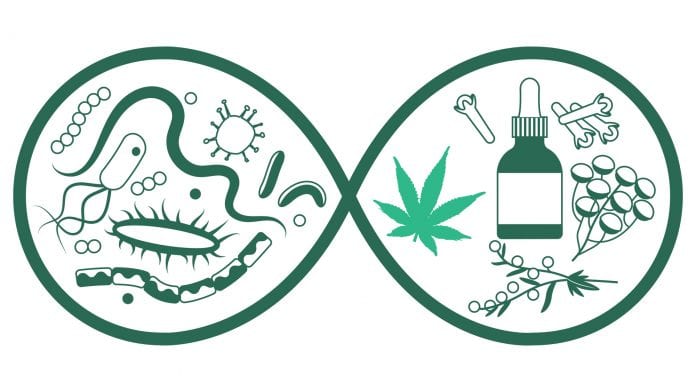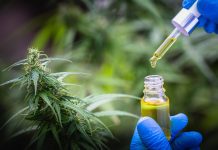
Amidst grave concerns of antibiotic resistance new research has shown that CBD might be an effective way of fighting superbugs.
Since cannabis compound CBD has proven itself as very promising in treating numerous different medical conditions, people are too eager to believe it’s a cure-all, which has lead to almost utopian sensationalism.
Although CBD truly offers a wide range of proven medical benefits, it’s quite normal that further claims which appear every now and then have caused quite a lot of scepticism. Probably the most ambitious among those claims is the one that CBD can become an efficient weapon to fight superbugs.
The threat of superbugs is nothing new – it is a growing global concern in healthcare since 2015. Bacteria have mutated into these superbugs by becoming resistant to drugs, making many antibiotics ineffective. This means that these antibiotic-resistant bacteria have become nearly impossible to treat. There’s a pressing urge to come up with drugs that are able to fight the infections but won’t further contribute to this resistance problem.
A unique manoeuvre
The researchers, at the University of Queensland’s Institute for Molecular Bioscience, discovered through a series of test-tube experiments that CBD is capable of killing numerous strains of bacteria, even the ones such as VRSA, VISA, and MRSA.
These strains have developed resistance to existing antibiotics over the years, but they didn’t develop any resistance to CBD. Since the strains were exposed to CBD for 20 days, researches concluded that this cannabis compound has the ability to outmanoeuvre the whole process of superbug development. The team leader of this research, Mark Blaskovich, states that there’s no doubt that CBD has a certain unique mechanism of action which works against bacteria that have developed resistance to other antibiotics, but has to admit they still don’t know how this unique manoeuvre works.
Tailored co-application
A later study, conducted in August by a team of scientist from the United Kingdom, has shed some more light on the workings of that unique mechanism.
They concentrated on Escherichia Coli bacteria, with the focus on its membrane vesicles, which the bacteria use to spread and communicate. What they discovered is that antibiotic’s ability to prevent the release of those membrane vesicles is enhanced by CBD. This means that CBD can be helpful in fighting specific bacteria as a tailored co-application with proper antibiotics. It may not be a complete solution by itself, but it’s certainly a compound that is able to enhance the body’s immune response to the antibiotic. So it certainly is a weapon to fight superbugs, by reducing antibiotic resistance.
The point of resistance
These two types of research confirmed CBD’s power to fight superbugs, sparking a lot of interest from the medical establishment and gaining a lot of coverage in both trade and popular journals.
Due to CBD’s ability to disrupt the layers of liquid around bacteria cells – called biofilm – which antibiotics had difficulty in penetrating, it’s obvious that it’s very unlikely to cause resistance, but only to some extent.
The Australian researches discovered that CBD is effective against Gram-positive bacteria strains which cause conditions such as pneumonia and skin infections. But they’ve also discovered that it’s not effective against Gram-negative strains associated with gastrointestinal disorders such as Escherichia Coli and salmonella. Nevertheless, the United Kingdom research did make progress with Escherichia Coli, so this point of resistance may depend on further research.
Beyond test tubes
Although these findings were presented in June at the American Society for Microbiology’s Microbe 2019 conference, they still haven’t been published in a peer-reviewed journal. No matter how promising, the research is still at an early stage and hasn’t gone beyond the test tubes. That’s why the scientists point out there’s still a lot of work to be done in order to determine if CBD can definitely treat infections in humans, and ask patients to refer from cannabis-based home remedies as a substitute for standard antibiotics. Serious infections still require tested and tried antibiotics and it would be dangerous replacing them with cannabidiol at such an early stage.
CBD market is undeniably blooming – with a supply chain freed up by the Farm Bill, CBD isolate goes for $2,000 (~€1,820) a kilo compared to the price of $20,000 (~€18,203) just four years ago. The problem is that science still hasn’t caught up with the market.
Nevertheless, undeniable evidence is here and with the restrictions on the research going down, it’s just a matter of time when CBD will become a weapon that can be put to use against the superbugs.
Bill Gordon
Guest contributor

















